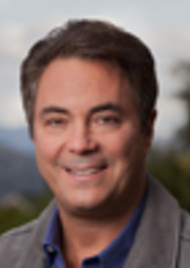By: Clint Wilder

"The future is already here. It's just not very evenly distributed." - Science fiction author William Gibson I came across Gibson's quote recently, and it really captures a lot about the present state of clean tech - and about the current battle of mindsets regarding the global climate crisis and what to do (or not do) about it. Throughout the history of business and technology, there has always been a schism between forward-thinking innovators and laggards stuck in the past. But I think the uneven distribution of who's really focusing on the future is particularly apparent right now. Ron Pernick and I chose the title of our book The Clean Tech Revolution, very deliberately. Revolutions come in different forms, but they always involve replacing a dominant, time- honored paradigm - be it a monarchy or an agriculture-based economy - with something new. And they are nearly always messy, because change is not always easily embraced by everyone. There's economic or political self-interest vested in the old way of doing things, sure, but there's also the simple stubbornness or inertia of human nature - a comfort in "the way it's always been done." I think that's been behind a lot of the denial that human activity is changing the earth's climate; there's a disbelief in something that's never happened before. Gibson's quote, on a 1999 Talk of the Nation program on NPR entitled "The Science in Science Fiction," was prophetic about both the build-out of the clean tech industry and the effects of climate change. The clean tech future is not evenly distributed at all. We can see the future that's already here in places like last month's California Clean Tech Open awards in San Francisco, honoring startup innovators like NiLA (energy-efficient lighting for film and TV production), 1-Solar (low-cost, lightweight PV inverters), and Syncromatics (real-time bus tracking software for transit efficiency). It's already here in places like the Kansas Department of Health and Environment, which last month became the first regulatory board in the United States to deny a permit for a new coal plant because of its projected carbon emissions. You could even make a case that it's already here at the New York Mercantile Exchange, where oil prices hit $94 a barrel in late October. But the clean tech future is not here in some outer regions of China, where illegal coal plants, burning dirtier than China's standards, are being built. It's most definitely not here in the White House, where President Bush still refuses to support any kind of mandatory carbon caps, despite a growing chorus of support across the political spectrum and the business world. And the future's not here in many offices of the U.S. Senate, where opponents of better auto fuel economy standards, a national renewable portfolio standard, and other forward-looking policies are closing ranks to derail passage of a national energy bill and carbon-reduction legislation. Ohio Republican Sen. George Voinovich says the Warner- Lieberman climate bill's mandate to cut CO2 emissions 15% by 2020 is beyond the capabilities of "commercially available technologies." I would disagree. The technology is here; the political will may not be. This uneven distribution of the future is not just about who's developing leading-edge clean energy technology and who isn't. Nor is it just about political positions. It's just as much about mindset - looking ahead vs. trying to hold onto some vision of the past, some vision destined to be encroached upon by the future as surely as slowly-rising sea levels wash over the low-lying islands of the Pacific. That's the thing about the effects of global climate change - they aren't very evenly distributed, either. We'll see that play out for the rest of our lifetimes - it's a future that's coming at an increasingly rapid pace. In that future, we'll need a much more even and widespread distribution of clean energy technologies - and of the right government and business leaders to make that distribution happen. ----------------- Wilder is Clean Edge's contributing editor and co-author of The Clean Tech Revolution. E-mail him at wilder[at]cleanedge[dot]com.

